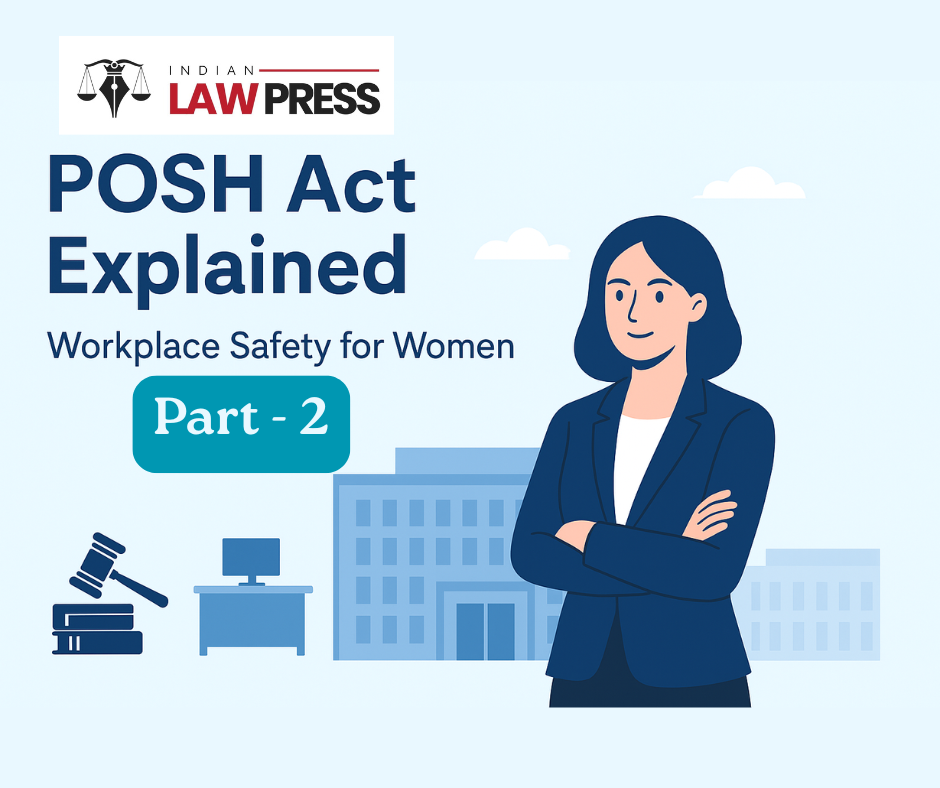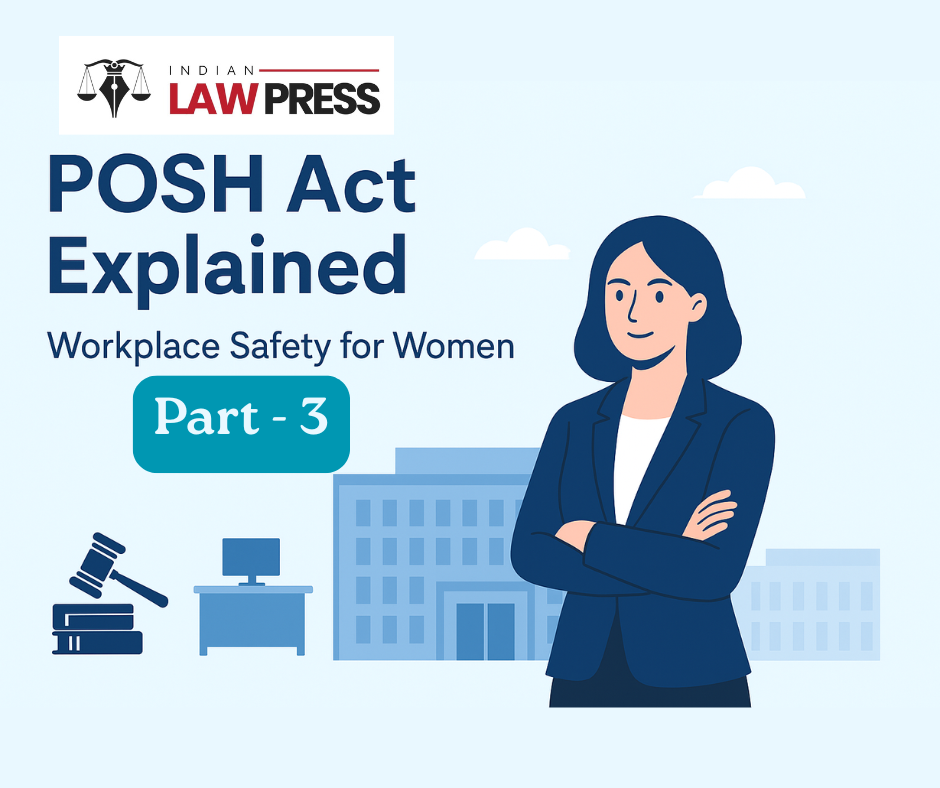Understand the POSH Act, 2013 – its definition of workplace, employees, and the complaint mechanism. A must-read guide for law students and professionals.
Introduction
The Sexual Harassment of Women at Workplace (Prevention, Prohibition, and Redressal) Act, 2013 — popularly known as the POSH Act — is one of the most important gender justice legislations in India.
This post helps students, law aspirants, and professionals understand what the POSH Act is, why it was enacted, and how it applies to workplaces.
What is the POSH Act?
The POSH Act was enacted to provide a safe and respectful work environment for women and to ensure that sexual harassment does not prevent them from achieving their professional goals.
Key Definitions You Must Know
- Workplace – Includes any office, department, branch, hospital, school, NGO, sports facility, or even online workplaces.
- Employee – Covers salaried employees, interns, trainees, consultants, daily wagers — anyone working for remuneration.
Example for Students: If a female intern in a law firm faces harassment, she can file a complaint under the POSH Act, even if she is unpaid.
Complaint Mechanism
- Internal Complaints Committee (ICC) – Must be formed in every organization with more than 10 employees.
- Local Complaints Committee (LCC) – Handles complaints in establishments with fewer than 10 employees or when the employer is the respondent.
🔗 Next Read: Supreme Court’s Verdict – Are Political Parties Workplaces?





